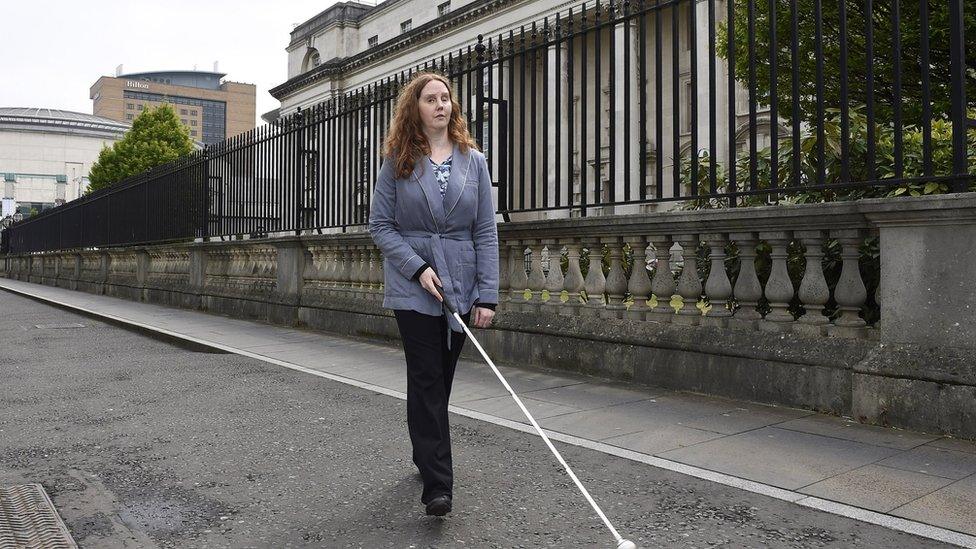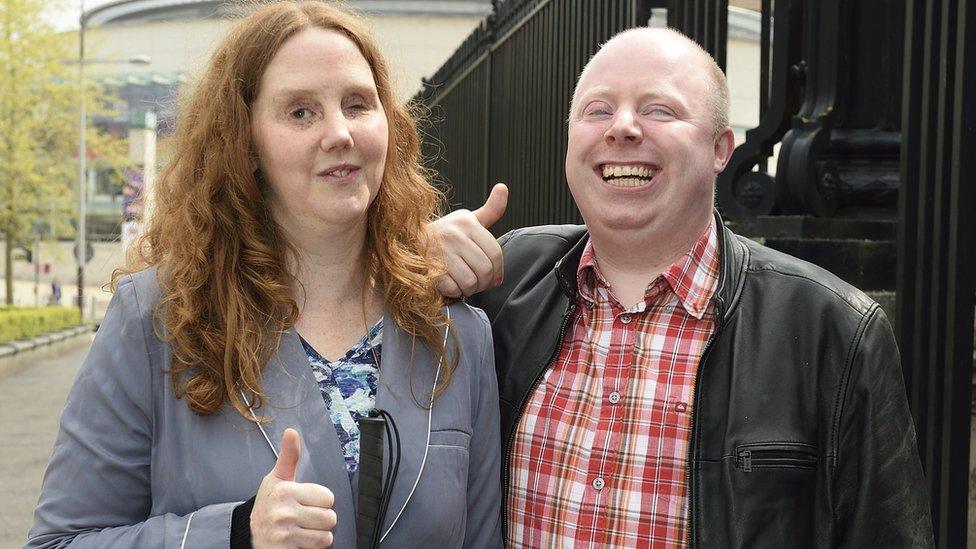Blind woman wins landmark challenge over kerb height
- Published

Mrs Toner said the lower kerbs were 'dangerous' as she could not tell where the pavement ended and the road began
A blind woman has won a landmark legal challenge over the height of kerbs in a multi-million pound regeneration scheme in Lisburn.
Joanna Toner, 39, secured a ruling that the council overseeing the city centre project breached its legal duty to ensure equality for disabled people.
Mrs Toner said the lower kerbs were "dangerous" as she could not tell where the pavement ended and the road began.
However, the ruling does not mean the pavements have to be ripped up.
'Not safe'
Outside the High Court in Belfast, Mrs Toner said she was "delighted" by the outcome of the judicial review.
"The council has to take into consideration the needs of disabled people in every decision they take," she said.
"If you can't tell where the path ends and the road begins you're just not safe from stepping out into traffic."

Joanna Toner and her husband Barry outside the High Court in Belfast
She said that previously she could walk around the city centre without difficulty, accompanied by her guide dog or using a white cane.
But the public realm scheme, and specifically the kerb heights, had dealt a blow to her confidence, she added.
As part of the scheme - which involved new paving and kerbs in and around Bow Street and the Market Square areas of the County Antrim city - kerbs were lowered to 30mm.
Mrs Toner's lawyers argued that academic research recommending the edges should be at least 60mm in height was not properly considered.
'Consider the detail'
In a wide-ranging case, they also alleged bias, unfairness, breaches of Mrs Toner's human rights and that a flawed consultation process had been carried out.
Mr Justice Maguire dismissed most of the challenges apart from claims that an equality impact assessment was not carried out, as required by law.
"There is clear evidence that the blind or partially sighted as a group of disabled people were likely to be affected by the way the scheme was designed and built," he said.
The redevelopment was completed in October 2015 and Lisburn and Castlereagh City Council is now expected to ensure an assessment is carried out.
"The council will now carefully consider the detail of the decision and has no further comment to make at this time," it said in a statement.
Mrs Toner's case was backed by Guide Dogs NI and the Royal National Institute of Blind People in Northern Ireland.
In a joint statement, the charities called on councils undertaking shared space schemes to comply with government guidance in relation to kerb heights, consult effectively with their residents who are blind and partially sighted and organisations like themselves during the design.